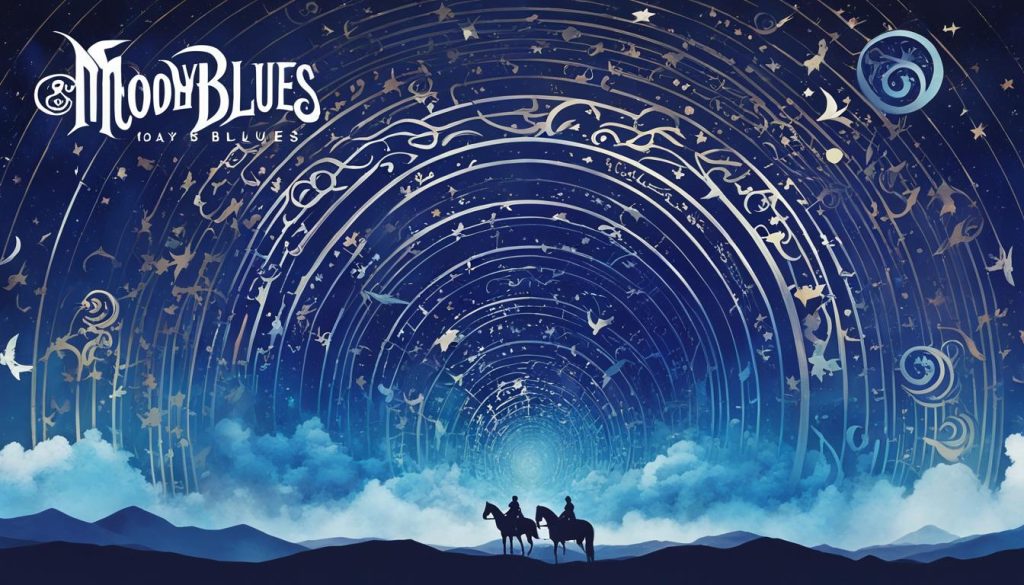Moody Blues: Pioneers of Progressive Rock Music
The Moody Blues are an English rock band that formed in Birmingham in the 1960s. They are widely recognized as pioneers of progressive rock music, blending classical, psychedelic, and blues elements to create a unique sound. Their innovative approach to music composition and production has influenced many musicians and bands over the years.
With their distinct style, the Moody Blues rose to fame in the late 1960s and early 1970s. Their music was characterized by lush arrangements, complex vocal harmonies, and poetic lyrics that spoke to the human condition.
Throughout their career, the Moody Blues released many iconic albums and hit songs that continue to resonate with listeners today. Their enduring legacy as trailblazers in rock music has solidified their place in music history and earned them millions of fans worldwide.
Key Takeaways
- The Moody Blues are an English rock band known for their unique sound that blends classical, psychedelic, and blues elements to create a distinct style.
- They are recognized as pioneers of progressive rock music and have influenced many musicians over the years.
- The Moody Blues rose to fame in the late 1960s and early 1970s and released many iconic albums and hit songs that resonate with listeners today.
- Their enduring legacy as trailblazers in rock music has solidified their place in music history and earned them millions of fans worldwide.
The Evolution of Moody Blues’ Sound
Throughout their career, the Moody Blues’ sound underwent a significant evolution, marked by distinct phases and creative experimentation with different styles and genres. Initially formed as a rhythm and blues band in 1964, they underwent a significant transformation in their musical style, driven by a desire to explore new horizons and move beyond their original influences.
During the mid-1960s, the band began incorporating psychedelic and orchestral elements into their music, producing a series of ground-breaking concept albums that fused rock and classical music. The innovative use of the mellotron, a keyboard instrument that utilized tape loops to create a unique sound, became a signature feature of their recordings and set them apart from their peers.

Over time, the Moody Blues’ sound continued to evolve, reflecting changing trends in popular music and their own artistic vision. In the 1980s and 1990s, the band experimented with synthesizers and electronic music, reflecting a broader embrace of technology in the music industry. Despite these changes, the core elements of the Moody Blues’ style remained intact, characterized by complex arrangements, poetic lyrics, and a distinctive blend of rock, classical, and progressive influences.
In conclusion, the Moody Blues’ sound evolved significantly over the course of their career, shaped by a commitment to experimentation, exploration, and the pursuit of artistic excellence. Their innovative approach to music-making laid the foundation for the progressive rock genre and cemented their status as musical legends.
Moody Blues’ Major Albums and Hits
Moody Blues’ popularity stems from their innovative sound and their ability to create timeless and iconic albums that have remained popular among fans for decades. Their expansive discography includes numerous hits and classic albums that have become staples of progressive rock music.
Days of Future Passed
Released in 1967, “Days of Future Passed” is considered the band’s breakthrough album. It features a fusion of rock and orchestral music, which set it apart from the other releases of the era. The album’s release of “Nights in White Satin” became one of their most popular songs, peaking at number 2 on the UK Singles Chart.

In Search of the Lost Chord
Released in 1968, “In Search of the Lost Chord” continued the band’s exploration of psychedelic and Eastern-inspired sounds. It was a commercial success, reaching the top 5 in the UK and US charts. The album features hits like “Ride My See-Saw” and “Legend of a Mind.”
A Question of Balance
Released in 1970, “A Question of Balance” showcased the band’s maturing sound and songwriting. It features hits like “Question” and “Melancholy Man.” The album was a commercial success, reaching the top 5 in the UK and US charts.
Seventh Sojourn
Released in 1972, “Seventh Sojourn” featured hits like “Isn’t Life Strange” and “I’m Just a Singer (In a Rock and Roll Band).” The album topped the charts in the US and UK, cementing the Moody Blues’ status as one of the most popular bands of the era.
The Moody Blues’ success can be attributed to their unique sound, innovative approach to music, and ability to create timeless and iconic albums. Their music continues to inspire and influence musicians to this day, making them a true pioneering force in the world of progressive rock.
Conclusion
As pioneers of progressive rock music, the Moody Blues have left an indelible mark on the music industry. Their innovative sound and willingness to experiment with different musical influences have inspired countless musicians over the years. From their early days as a rhythm and blues band to their later exploration of orchestral elements, the Moody Blues have remained committed to pushing the boundaries of their craft.
While their major albums and hits have defined their success, it is their enduring legacy that truly sets them apart. The Moody Blues’ influence can be heard in the work of countless artists across a variety of genres, and their music continues to captivate audiences around the world. For these reasons and more, the Moody Blues will always be remembered as true trailblazers in the world of progressive rock music.
FAQ
Who are the Moody Blues?
The Moody Blues are a British rock band that emerged in the 1960s. They are known for their unique blend of progressive rock, psychedelic rock, and orchestral elements.
What is progressive rock music?
Progressive rock music is a genre characterized by complex compositions, virtuosic performances, and experimental soundscapes. It often incorporates elements from classical, jazz, and other genres.
How did the Moody Blues pioneer progressive rock music?
The Moody Blues played a significant role in popularizing progressive rock music. They were one of the first bands to fuse orchestral arrangements with rock music, creating a symphonic sound that was groundbreaking at the time.
What are some milestones in the Moody Blues’ musical evolution?
The Moody Blues’ musical evolution can be traced through various milestones. They transitioned from their rhythm and blues roots to experimenting with psychedelic rock, culminating in their orchestral breakthrough with the album “Days of Future Passed.”
What are the Moody Blues’ most popular albums and hits?
The Moody Blues’ discography includes several major albums and hits. “Days of Future Passed,” “Nights in White Satin,” “In Search of the Lost Chord,” and “The Question of Balance” are among their most iconic albums, with songs like “Tuesday Afternoon” and “I’m Just a Singer (In a Rock and Roll Band)” being some of their most beloved hits.
What is the enduring legacy of the Moody Blues?
The Moody Blues left an enduring legacy as pioneers of progressive rock music. They pushed the boundaries of what was possible in rock music and continue to inspire and influence musicians with their innovative sound and artistic vision.
